I’m so excited to have Amy Maricle, a licensed mental health counselor and art therapist, share a simple technique that you can use to help your children manage big feelings such as, anxiety, irritability, fear or frustration. Get out the paint smocks!
There are lots of ways that you can use art to help your kids manage anxiety. Maybe you have already noticed how much art can help your kids feel better? I’d like to share just one simple idea that incorporates talking things out and using art to help your child process and shift her feelings. At the end of the post, tell us a few tricks you have learned, or how you might change what I’m doing here to better fit your child.
Facing Anxiety and Irritability with Art
Let’s pretend your son seems anxious and irritable one day while doing his homework.
You say, “Geez, Jack, you are grunting and slamming your books. What’s got you so frustrated? How can I help?” (Your first intervention is helping him label his feelings instead of acting them out. You are also letting him know that you see him and acknowledge his feelings.) Jack tells you he is mad because he was talking and joking around in class, and got a warning from his English teacher.
He narrates the story to you and complains about being the “only one” who got in trouble even though a lot of kids were talking. You spend time helping him put words to his feelings, and validating them. Then you ask what is bothering him most about the situation.
He tells you that he thinks his teacher singled him out because she doesn’t like him. He says he doesn’t know why she doesn’t like him, but he’s upset about it because he likes his teacher and doesn’t want to get in trouble.
You want to help Jack feel better, and you want his teacher to like him too. You talk together through some of the practical solutions. You might talk about personal responsibility, or how not everyone will like us. But Jack is still feeling bothered and irritable. Now what?
Art can help.
Step 1: Getting It Out
Get out a sheet of paper and use a bowl or plate to trace a big circle. In the middle, write: “I feel anxious/angry/sad because” and let your child fill in the blank, or be his scribe and write it in for him.
(I chose the shape of a circle for this exercise because it’s a very meaningful and healing shape. If you are interested in learning more about why, visit this great page on mandalas or see some gorgeous mandalas from my lovely art therapist colleague, Sara Roizen.)
Step 2: Smoothing It Out
Once he puts on paper what is most bothering him, it’s time to make some magic happen. Grab some paint, brushes, and water. It doesn’t matter if it’s acrylic or tempra paint, just don’t use watercolor, because we don’t want to see the words once he covers them with paint. Ask your child to paint over the circle, in any pattern, with any colors. There is no right or wrong. Just transform the circle from a sentence about anxiety into art.
Now you are looking together at a dried, freshly painted piece of art. If you noticed any changes in his breathing or posture, you can talk together about how making art affects him. Did his shoulders drop? Did his breathing get deeper and more in his belly?
Explore together what he thinks might help him through this situation with his teacher. What qualities or tools does he have that could help him? What quality does he wish he had? If this feels hard, start with what he most like about himself, or something you admire about him. Together, come up with a positive word or phrase. Write it in the middle of the circle.
Would you do something like this with your child? How would you change it to better reflect you and your child? Do you find your kids naturally using art to feel better? Do you ever notice a difference in them before and after making art? Are there particular materials that seem to help? Clay more than paint? Poetry more than drawing? What would you do differently?
 Amy Johnson Maricle, LMHC, ATR-BC is an art therapist and blogger in Foxboro, MA. Her blog focuses on how art and mindfulness can help teens, adults, and families live with less anxiety and more happy.
Amy Johnson Maricle, LMHC, ATR-BC is an art therapist and blogger in Foxboro, MA. Her blog focuses on how art and mindfulness can help teens, adults, and families live with less anxiety and more happy.

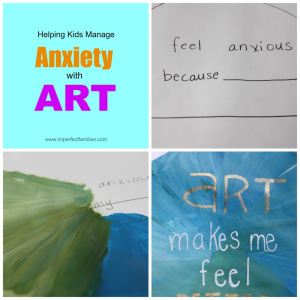
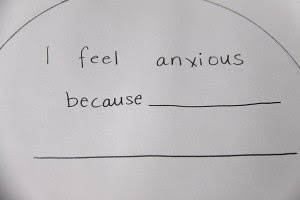
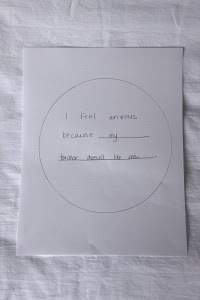
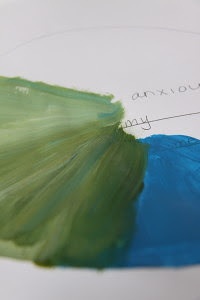
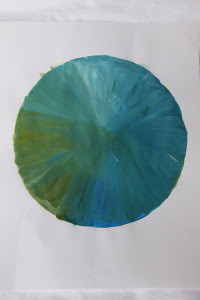
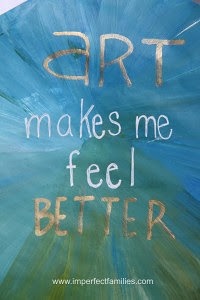
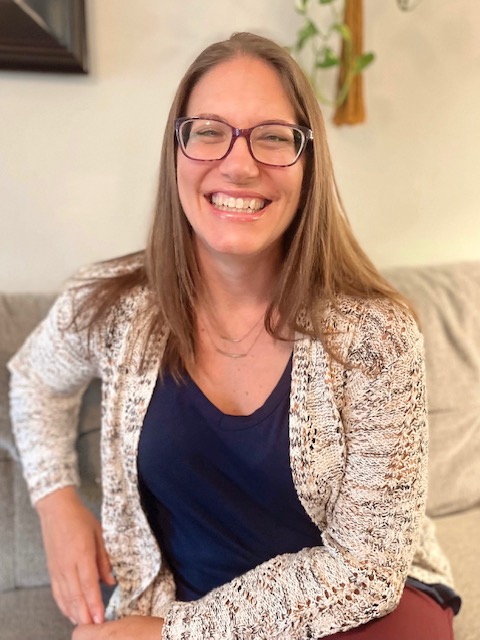
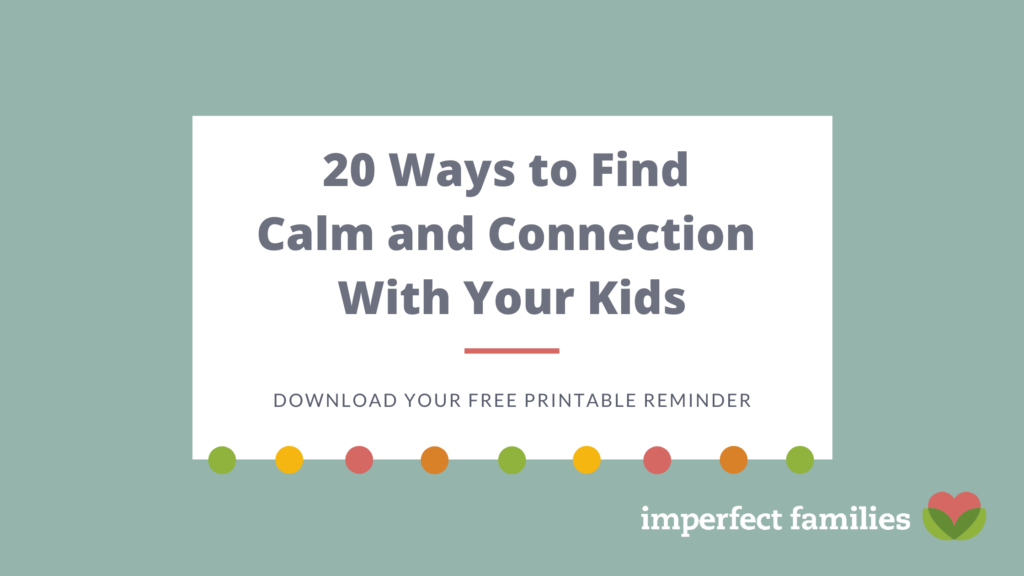
Comments have been turned off to retain the privacy of all families. If you have a question or comment on the topic, you're always welcome to contact me.